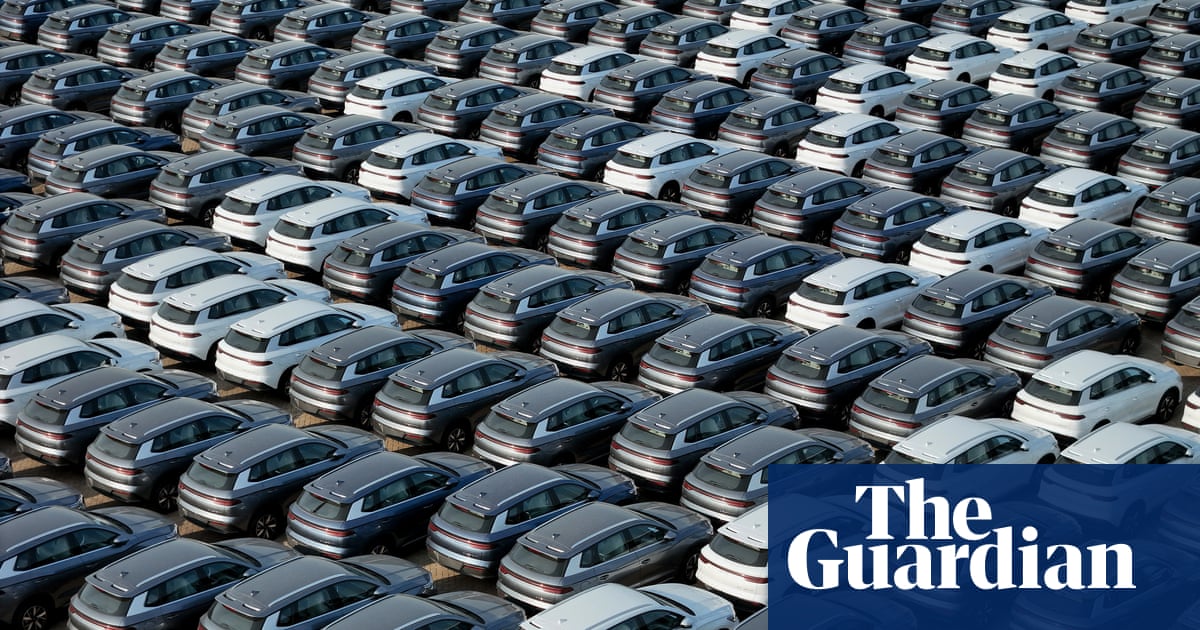Canada, following the lead of the United States, on Monday said it would impose a 100% tariff on the import of Chinese electric vehicles and also announced a 25% tariff on imported steel and aluminum from China.
The prime minister, Justin Trudeau, said Ottawa was acting to counter what he called China’s intentional, state-directed policy of over-capacity. But he did not specify whether tariffs would be softened or would be the same on Tesla, whose shares were down over 3% on Monday after the announcement.
“I think we all know that China is not playing by the same rules,” he told reporters. The tariffs will be imposed starting on 1 October this year.
“What is important about this is we’re doing it in alignment and in parallel with other economies around the world,” Trudeau said on the sidelines of a three-day closed-door cabinet meeting in Halifax, Nova Scotia.
The Chinese embassy in Ottawa was not immediately available for comment.
Ottawa will continue to work with the United States and other allies to ensure that customers around the world are not unfairly penalized by non-market practices of countries such as China, Trudeau said.
Ottawa is also looking at further punitive measures such as tariffs on chips and solar cells, Trudeau said, without giving any details.
Joe Biden in May announced a quadrupling of tariffs on Chinese electric vehicles to 100%, a doubling of duties on semiconductors and solar cells to 50%, as well as new 25% tariffs on lithium-ion batteries and other strategic goods including steel to shield firms from Chinese excess production.
The European Union earlier this month imposed tariffs of up to 36.3% on imports of EVs.
Ottawa is trying to position Canada as a critical part of the global EV supply chain, and had come under pressure from domestic industry to act against China.
China is Canada’s second-largest trading partner, although it trails far behind the US. Data from Canada’s largest port in Vancouver show imports of automobiles from China at the port jumped 460% annually in 2023, when Tesla started shipping Shanghai-made EVs to Canada.
Tesla does not disclose its Chinese exports to Canada, which began in the first half of 2023. However, vehicle identification codes showed that the Model 3 compact sedan and Model Y crossover models were being exported from its Shanghai Gigafactory to Canada.
“In response to the tariffs, I would expect Tesla would shift its logistics and potentially export autos to Canada from the US,” Seth Goldstein, equity strategist at Morningstar, said.
“The market is likely reacting to the tariffs and weighing a potential profit impact if Tesla has to export vehicles to Canada from its higher-cost production base in the US,” Goldstein said referring to the drop in shares.
The EU imposed a new reduced extra rate of 9% for Tesla, lower than the 36.3% it had imposed on other Chinese EV imports.
Canada has inked deals worth billions of dollars to bring in top European automakers in all parts of the EV supply chain to bolster its manufacturing heartland.
“We feel vindicated and motivated. Let’s now get to the business of defending our market with the best of Canadian innovation and resolve,” Flavio Volpe, president of the Automotive Parts Manufacturers’ Association, said over email.
Implementation of the US tariffs has been delayed until September and there is a possibility that planned duties might be softened this week.

